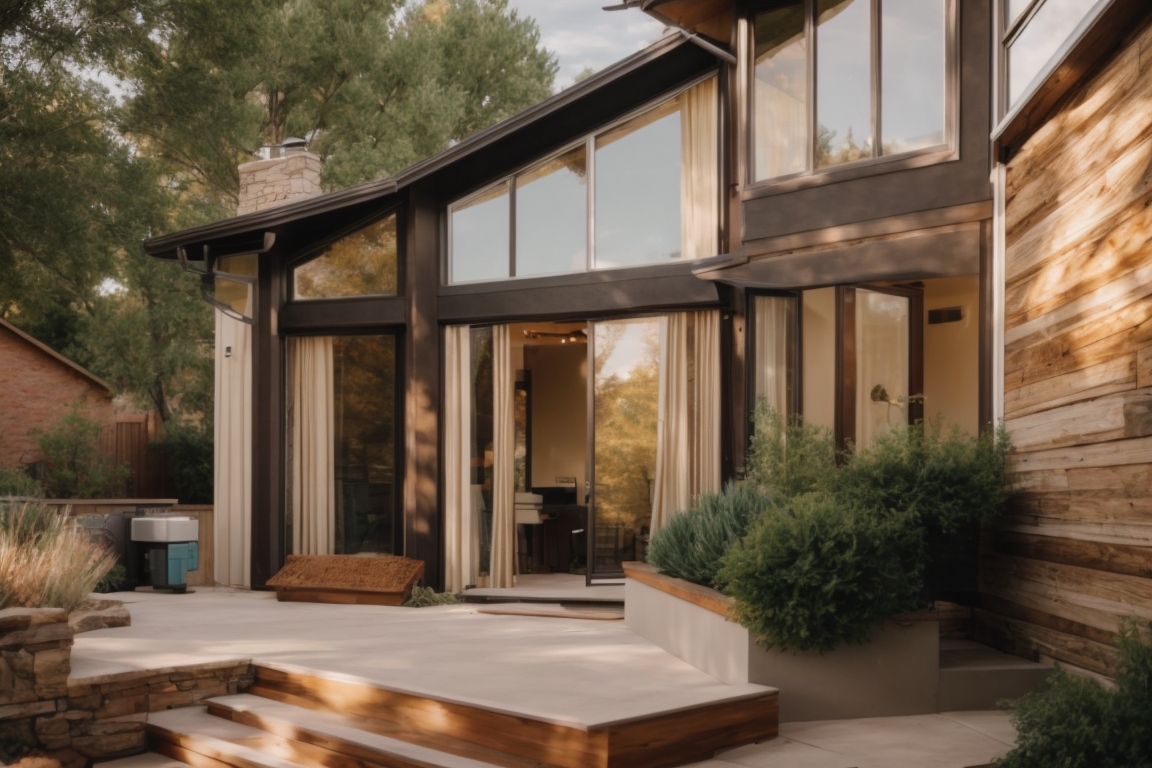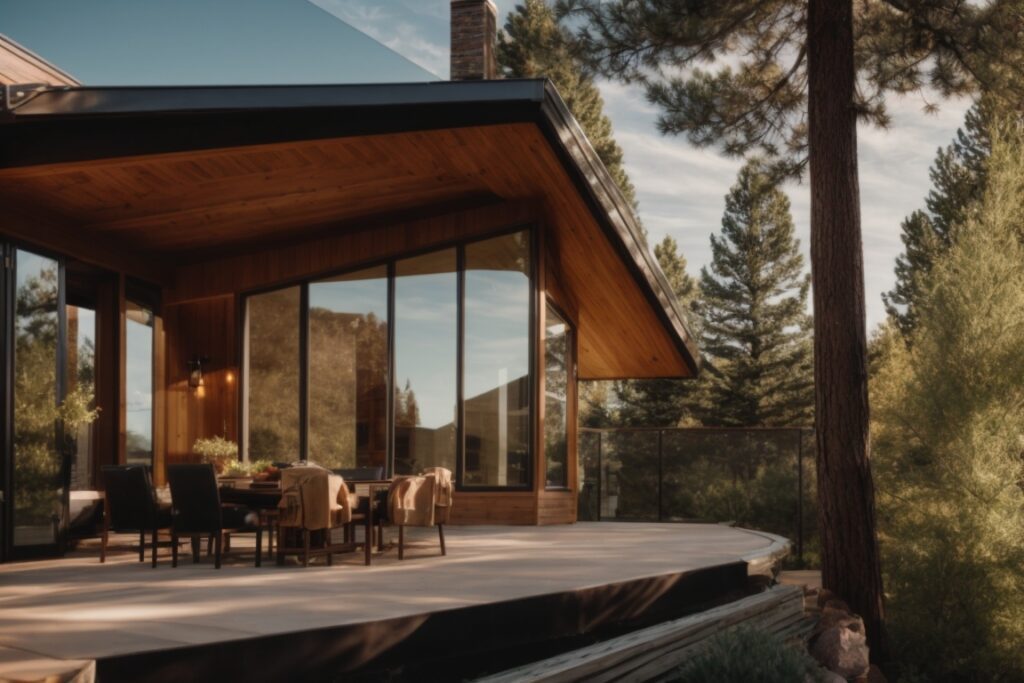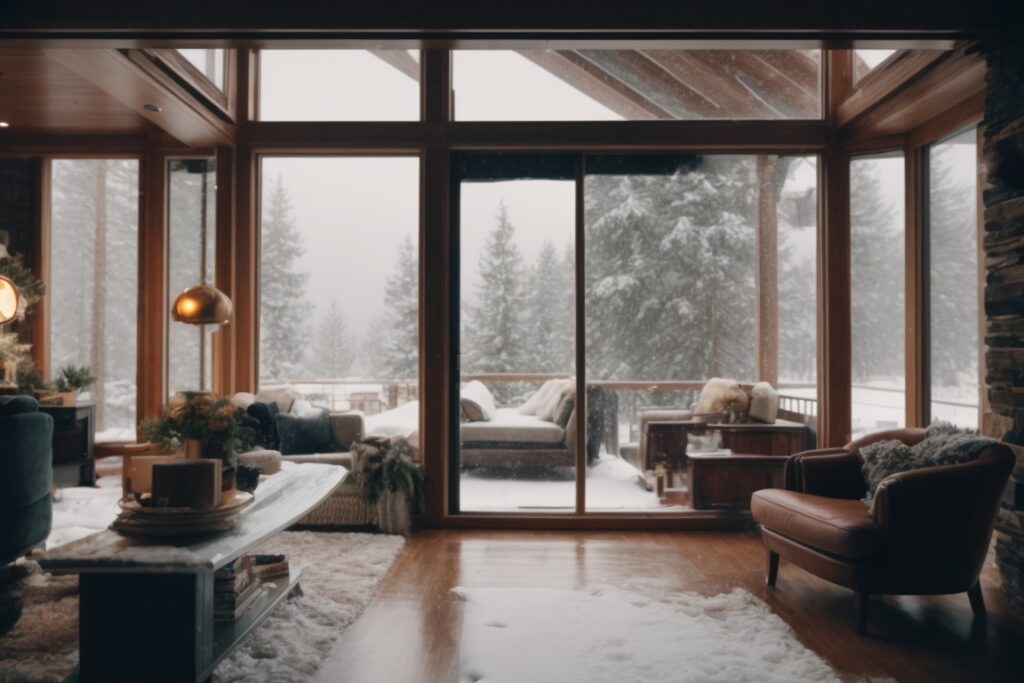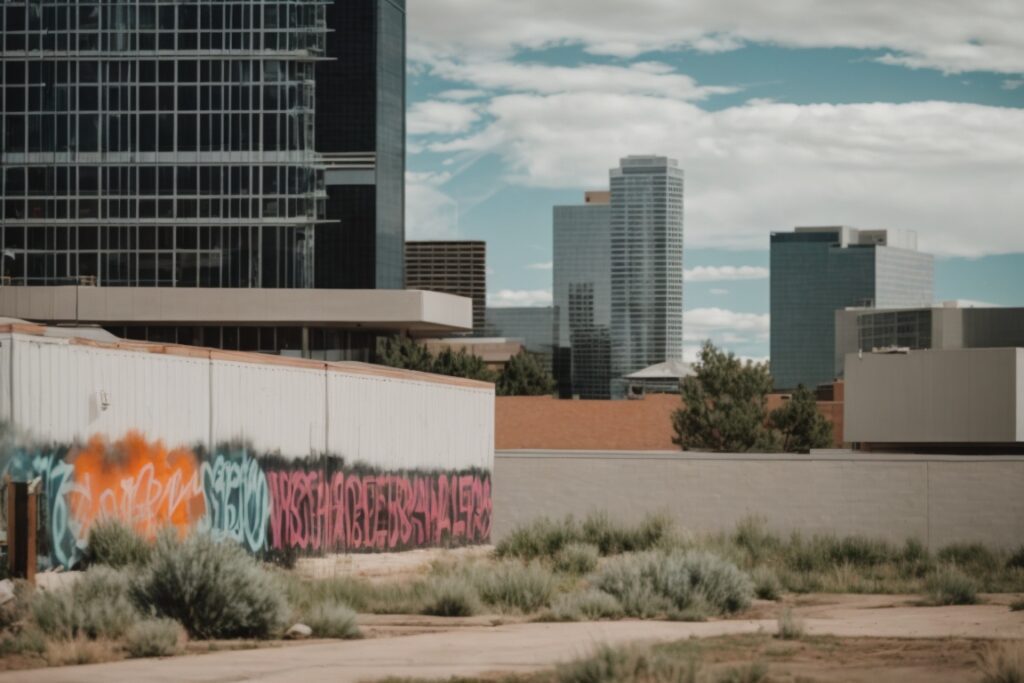Discover the Significance of Low-E Glass Film in Denver Homes
In Denver, where the weather spans the extremities of hot summers to frigid winters, the quest for maintaining an ideal home environment poses both a challenge and an opportunity. One underappreciated hero in this endeavor is low-e glass film. Despite its crucial role in enhancing home comfort and energy efficiency, many Denver residents remain unaware of its benefits. Low-e glass film, a marvel of modern engineering, promises to significantly improve the livability of homes by controlling the amount of ultraviolet and infrared light that passes through windows without compromising on natural light.
Implementing low-e glass film in Denver homes is not merely a matter of aesthetic enhancement but a crucial step towards achieving energy efficiency and reducing unnecessary heat loss or gain. As Denver battles with its bipolar weather patterns, the choice of window treatment becomes pivotal. Unfortunately, the lack of awareness regarding the technological advancements in low-e glass film means many continue to suffer from higher energy bills and less comfortable living spaces. The importance of educating Denver homeowners about this effective solution cannot be overstated.
As we move towards a more energy-conscious future, understanding and harnessing the power of low-e glass film in our homes is paramount. This simple yet effective addition to Denver homes not only promises to enhance comfort but also contributes to environmental conservation by reducing energy consumption. The need to raise awareness about low-e glass film and its plethora of benefits is crucial as we aim to create more sustainable and comfortable living environments in Denver’s diverse climate.
Understanding the Need for Low-E Glass Film in Denver
The delightful sparkle of naturally lit homes in Denver is often marred by the uncomfortable reality of excessive heat gain and loss, leading to a pressing issue: the need for an effective solution that mitigates these effects while maintaining the homes’ aesthetic appeal. Denver’s unique climate, characterized by sunny days and cold nights, puts a strain on conventional glass windows, which fail to insulate homes efficiently against external temperature variations. As a result, homeowners face the dual challenge of keeping their homes warm during chilly winters and cool during the scorching summers without escalating energy costs.
The introduction of Low-E glass film presents a promising solution to this predicament. This technology is designed to reflect infrared heat, thus helping maintain consistent indoor temperatures. However, the awareness and understanding of Low-E glass film’s benefits among Denver homeowners remain limited. The primary issue, therefore, is not just the climatic challenge but also the gap in knowledge about available solutions that can enhance living conditions effectively while also being energy-efficient.
The Silent Emissivity Drain in Denver Homes
Denver residents might find these facts about low-E glass film startling: Without it, windows are responsible for up to 30% of a home’s energy loss. In Denver’s climate, which swings from snowy winters to sunny, high-UV summers, this inefficiency can lead to higher energy bills and discomfort. Furthermore, The U.S. Department of Energy identifies window improvements like low-E glass film as essential for energy savings, stating that proper window insulation can save homeowners 12%-33% annually on energy costs. Such statistics highlight the urgent need for Denver homes to adopt low-E glass film technology.
The Problem with Inadequate Window Insulation in Denver
Denver residents face a unique set of challenges when it comes to maintaining a comfortable home environment. One of the most significant issues is the inefficiency of traditional windows that lack low-e glass film. This inefficiency not only leads to uncomfortable living conditions but also contributes to higher energy bills and increased carbon footprints.
Traditional windows without low-e coatings allow for the unrestricted passage of heat, making it difficult to keep homes warm during Denver’s cold winters and cool during its hot summers. This results in heating and cooling systems having to work overtime to maintain a steady indoor temperature, leading to increased energy consumption and higher utility costs.
Moreover, the excessive sunlight that penetrates through uncoated windows can cause furniture, flooring, and artworks to fade prematurely, adding unnecessary expenses for homeowners. In addition to the financial implications, the environmental impact cannot be ignored. Increased energy usage means higher emissions of greenhouse gases, contributing to climate change – a critical global issue that affects us all. The problem extends beyond individual homes, affecting the community and, ultimately, the planet.
Thus, the lack of low-e glass film in Denver homes is not just a minor inconvenience; it’s a significant problem that impacts residents’ comfort, financial well-being, and the environment. Identifying and addressing this issue is crucial for anyone looking to improve their home’s efficiency and liveability.
Understanding the Problem: Energy Efficiency and Comfort
In Denver, the love for sunlit homes confronts an uncomfortable reality: increased energy bills and faded interiors. The abundant sunshine, while a blessing, can lead to higher temperatures indoors, pushing air conditioning systems to work harder and consume more energy. This issue isn’t just about discomfort during Denver’s sunny days; it’s about the significant impact on energy consumption and the health of your home’s interiors.
Low-E glass film offers a promising solution, but the problem at hand extends beyond the mere desire for window treatments. It’s essential for Denver homeowners to recognize the dual challenge of maintaining comfort without compromising on natural light or energy efficiency. Understanding this balance is crucial in addressing the core issue: the need for a practical approach to manage sunlight exposure, reduce energy costs, and protect the interior from UV damage, all without obstructing the beauty of Denver’s outdoor views.
Denver Homeowner Reduces Energy Bills with Low-E Glass Film
In Denver, the Johnson family struggled with high energy bills during both winter and summer months due to inefficient windows. After installing low-E glass film, they noticed a significant decrease in their energy consumption. The film’s ability to reflect infrared light kept their home warmer in the winter and cooler in the summer without overworking their HVAC system. Just a year after installation, they reported savings of up to 25% on their energy bills, showcasing the effectiveness of low-E glass film in enhancing window efficiency and reducing energy costs.
Consequences of Ignoring the Problem
Choosing to overlook the benefits of low-e glass film in Denver homes is a decision that comes with significant drawbacks. The initial indifference might seem inconsequential, but the long-term effects can be severely detrimental, impacting both comfort and costs. Without the protective barrier provided by low-e glass film, homeowners will experience increased thermal transfer. This means hotter interiors during Denver’s sunny days and colder indoor temperatures when the weather turns chilly.
The financial implications are equally concerning. Energy bills can soar as heating and cooling systems work overtime to counter the effects of poor insulation. Over time, the cost of neglecting to install low-e glass film will likely surpass the initial investment in the product. Moreover, the constant fluctuation in indoor temperatures can accelerate wear and tear on HVAC systems, potentially leading to costly repairs or replacements.
Ultimately, the decision to ignore the installation of low-e glass film in Denver homes not only affects immediate comfort but also has far-reaching financial consequences. The benefits of this upgrade go beyond simple aesthetics; it’s an investment in long-term energy efficiency and property value.
Economic Impacts of Overlooking Low-E Glass Film in Denver
Not installing Low-E glass film in Denver homes can have noticeable economic repercussions for homeowners. In Denver’s fluctuating climate, windows without Low-E coatings can lead to increased energy bills due to less efficient heat retention during winter and overworking of cooling systems in the summer. This inefficiency translates into higher monthly expenses and, over time, a significant financial burden. Additionally, homes equipped with Low-E glass film are often more attractive to prospective buyers, potentially increasing a property’s market value and resale prospects.
Low-E Glass Film: The Perfect Solution for Denver Homes
In Denver’s dynamic climate, where homeowners experience a wide range of weather conditions, Low-E glass film presents itself as an innovative solution to combat common window-related challenges. This section highlights how Low-E glass film skillfully addresses issues such as energy inefficiency, UV damage, and temperature fluctuations, positioning it as an indispensable addition to Denver homes.
Low-E glass film works by reflecting and absorbing infrared and UV light, allowing natural light to enter while minimizing heat loss and gain. This feature is especially beneficial in Denver, where the weather can vary from intense sunlight to cold temperatures. By installing Low-E glass film, homeowners can enjoy significant energy savings, as their homes maintain a more consistent and comfortable temperature without overworking heating or cooling systems. This translates to reduced energy bills and a smaller carbon footprint, aligning with the environmental values prevalent in the community.
Additionally, Low-E glass film protects interiors from the harmful effects of UV rays, which can fade furniture, floors, and artwork. This protection extends the life of household items and saves homeowners the cost and hassle of frequent replacements. Beyond its functional benefits, Low-E glass film enhances the aesthetic appeal of windows without compromising the view or the home’s architectural style, making it an attractive option for those looking to update their windows without a complete overhaul.
In sum, for Denver residents seeking to enhance their home’s energy efficiency, protect their interiors, and maintain comfort through Denver’s seasonal shifts, Low-E glass film is a smart, effective, and aesthetically pleasing choice.
Enhancing Denver Homes with Low-E Glass Film
Low-E glass film emerges as a revolutionary solution for Denver homeowners grappling with fluctuating temperatures and the relentless glare of the sun. This innovative film, applied directly to the windows of a home, addresses the dual challenge of heat loss in winter and excessive heat gain in summer, issues that are all too familiar in the Denver climate.
By reflecting infrared radiation, Low-E glass film significantly reduces the amount of heat that passes through windows, thus maintaining a comfortable interior temperature year-round. In winter, it helps retain indoor heat, reducing the need for excessive heating. During the warmer months, it reflects heat and UV rays away from the home, which not only keeps indoor spaces cooler but also protects furniture and flooring from sun damage.
Moreover, Low-E glass film enhances the efficiency of a home’s heating and cooling systems, leading to lower energy bills and a reduced carbon footprint. It does so without compromising natural light or the views of the beautiful Denver landscape, making it an ideal solution for those looking to improve their home’s energy performance while enjoying gently gleaming windows that enhance the aesthetic appeal of their living space.
Benefits and Features: Low-E Glass Film in Denver
Low-E glass film is a revolutionary addition to Denver homes, providing a plethora of benefits and features that enhance both comfort and efficiency. Key among these benefits is its ability to reduce heat transfer, keeping homes warmer in the winter and cooler in the summer without overburdening HVAC systems. This not only leads to a more comfortable living environment but also to significant energy savings. The film’s low emissivity coating also protects against UV rays, preventing furniture and carpets from fading while still allowing natural light to fill the room. Moreover, Low-E glass film adds an extra layer of privacy and security, making it a smart and stylish choice for Denver residents.
Success Stories: Enhancing Denver Homes with Low-E Glass Film
Denver homeowners have plenty to say about the benefits of installing low-e glass film in their homes. Take the Anderson family in the suburban areas of Denver, for instance. After installing low-e glass film, they noticed a significant reduction in their monthly energy bills. “We were skeptical at first, but the difference it has made in our home’s temperature control and energy efficiency is remarkable,” Mr. Anderson shared. “Our home feels more comfortable, and we are saving money. It’s a win-win.”
Another testimonial comes from Sarah Jennings in downtown Denver, who was looking for ways to protect her furniture and hardwood floors from sun damage. After the installation of low-e glass film, she noticed a visible difference in how much cooler her rooms were, even in direct sunlight. “It’s like having sunglasses for your house,” she joked. “But in all seriousness, my floors and furniture are protected from fading, and my living space is much more comfortable. I couldn’t be happier with the results.”
Transforming a Denver Home with Low-E Glass Film
In the heart of Denver, the Thompson family decided to retrofit their charming yet older home with low-e glass film. Facing the intense sun and fluctuating temperatures, their energy bills were soaring. Post-installation, they noticed a significant reduction in heat gain during summer and heat loss in winter, slashing their energy costs by 25%. This upgrade not only enhanced their comfort but also increased their home’s appeal and value. Their success story is a testament to the effectiveness of low-e glass film in Denver’s unique climate. Ready to make a change? Contact us today to lower your energy bills and enhance your home’s comfort.





About The Author: Cwtdadmin
More posts by cwtdadmin